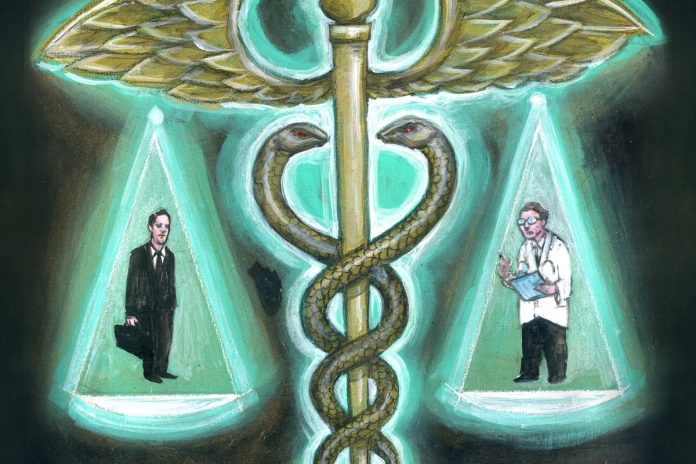At the age of 17 I survived a near-fatal incident during a fight after a high school football game where someone fired a gun. A stray bullet hit my throat, damaging my trachea and carotid artery.
This traumatic event deeply impacted my family. While my survival and recovery were paramount, my parents struggled with paperwork, billing, and insurance inquiries at the hospital. Even after my discharge, the challenges persisted, diverting our focus from my healing to navigating delayed approvals, denied access to therapy, and clarification of reimbursements.
As a trauma surgeon now, I’ve witnessed similar struggles faced by many. With the recent tragic event involving UnitedHealthcare CEO Brian Thompson, the outcry against profit-driven health insurance policies is escalating. The demand for reform is growing louder, highlighting the need for a system that prioritizes people over profits.
Supporting Science Journalism
If you’re enjoying this article, consider supporting our award-winning journalism by subscribing. Your subscription helps ensure the future of impactful stories about the discoveries and ideas shaping our world today.
The U.S. spends an average of $15,074 per person on healthcare annually. Despite having insurance, many face bankruptcy due to high medical expenses. Around 41 percent of Americans carry medical debt, demonstrating the system’s failure to provide financial security when needed.
Insurance companies dictate care, leading to delays through bureaucratic hurdles like prior authorizations and denied claims. Patients and their families are forced to navigate complex systems, often giving up on rightful coverage. This predatory inefficiency exacerbates mental health challenges, compounding the system’s failures.
The need for reform requires reimagining a system where patients are valued over profits. We must prioritize human life, accountability, and a system that offers healing rather than harm.
To achieve lasting change, we must revisit care, equity, and cost in healthcare policies. Streamlining processes, integrating mental health, and holding insurers and clinicians accountable are crucial steps towards a system that prioritizes dignity over profit.
Despite challenges in implementing broad reforms under the current administration, the call for a more equitable system remains urgent. Insurers must cap expenses, eliminate limits, and expand assistance to ensure all Americans can focus on recovery.
Transforming the healthcare system requires unity among patients, clinicians, policymakers, and insurers to prioritize care, outcomes, and people over profit. This shift is essential to inspire hope and alleviate suffering in our healthcare system.
This opinion and analysis article reflect the views of the author and not necessarily Scientific American.




